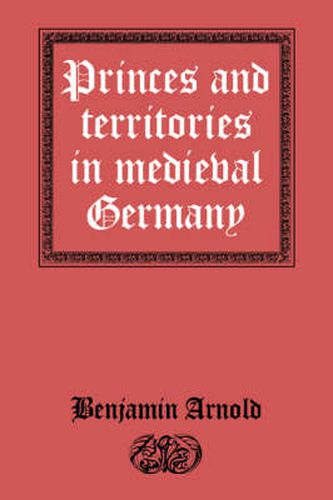Readings Newsletter
Become a Readings Member to make your shopping experience even easier.
Sign in or sign up for free!
You’re not far away from qualifying for FREE standard shipping within Australia
You’ve qualified for FREE standard shipping within Australia
The cart is loading…






This book addresses the most important question in pre-modern German political history: why did a multiplicity of states and territories emerge by the end of the Middle Ages instead of an incipient ‘nation state’ under the crown? The answer is found not in the supposed failures of German kingship, but instead in the creative aristocratic successes of the secular dynasties and princes of the Church. We see how their collective efforts in the centuries after 1050 added up to a more markedly territorial structure of regional power, already emerging by the thirteenth century as a result of their endeavours in the economy, internal and external colonization, and the establishment of new castles, towns, monasteries and communications; in local, ecclesiastical and imperial law, and the jurisdictional reform which they imposed in their regions; and in the uses of dynastic politics, including feuds as well as alliances, inheritance and partition.
$9.00 standard shipping within Australia
FREE standard shipping within Australia for orders over $100.00
Express & International shipping calculated at checkout
This book addresses the most important question in pre-modern German political history: why did a multiplicity of states and territories emerge by the end of the Middle Ages instead of an incipient ‘nation state’ under the crown? The answer is found not in the supposed failures of German kingship, but instead in the creative aristocratic successes of the secular dynasties and princes of the Church. We see how their collective efforts in the centuries after 1050 added up to a more markedly territorial structure of regional power, already emerging by the thirteenth century as a result of their endeavours in the economy, internal and external colonization, and the establishment of new castles, towns, monasteries and communications; in local, ecclesiastical and imperial law, and the jurisdictional reform which they imposed in their regions; and in the uses of dynastic politics, including feuds as well as alliances, inheritance and partition.